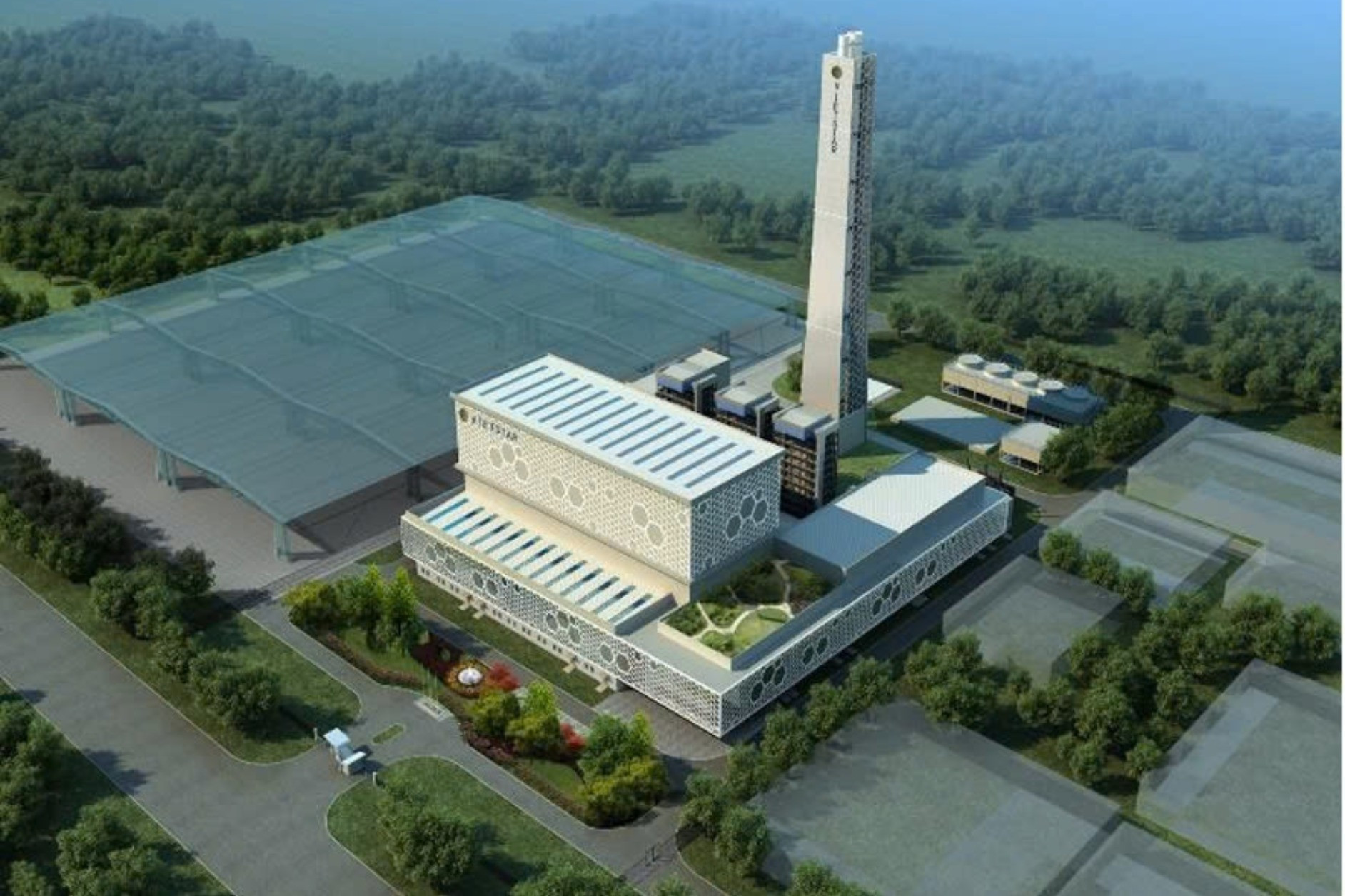
Ho Chi Minh City has begun construction on a waste-to-energy plant located in the Northwest Solid Waste Treatment Complex, Cu Chi district.
The facility has an investment of 3,500 billion VND (approximately $140 million) and a processing capacity of 2,000 tons per day.
On the morning of March 5, the Ho Chi Minh City Department of Natural Resources and Environment, in collaboration with VietStar JSC, held the groundbreaking ceremony for the VietStar Integrated Solid Waste Treatment Plant.
Nguyen Toan Thang, Director of the Ho Chi Minh City Department of Natural Resources and Environment, stated that the plant is expected to be completed within 17 months.
It is the second waste-to-energy plant in the city, implemented under Resolution 98, which promotes special mechanisms and policies for Ho Chi Minh City's development.
The plant will use an integrated waste treatment system, combining compost production with incineration technology from Germany to generate electricity.
Once operational, it will increase the city’s waste treatment capacity to nearly 50% of total municipal waste, significantly reducing pollution while recovering energy for production and daily use.
A key step in Ho Chi Minh City’s waste management transformation
At the ceremony, Bui Xuan Cuong, Vice Chairman of the Ho Chi Minh City People's Committee, highlighted the city's major challenge of managing approximately 10,000 tons of municipal waste daily.
He emphasized the urgent need to shift from traditional waste disposal methods to modern technologies that treat waste as a resource.
"The completion of this plant will not only enhance waste management but also mark an important milestone in Ho Chi Minh City’s renewable energy strategy. It will help reduce greenhouse gas emissions, improve living conditions, and strengthen urban energy security," Cuong stated.
According to the 11th Ho Chi Minh City Party Congress (2020–2025), the city aims to process at least 80% of its municipal waste using advanced technologies such as waste-to-energy and recycling by 2025, progressing to 100% by 2030.
In July last year, Ho Chi Minh City also launched its first waste-to-energy plant, which has a treatment capacity of 2,600 tons per day and generates approximately 60 MW of electricity daily.
Tuan Kiet